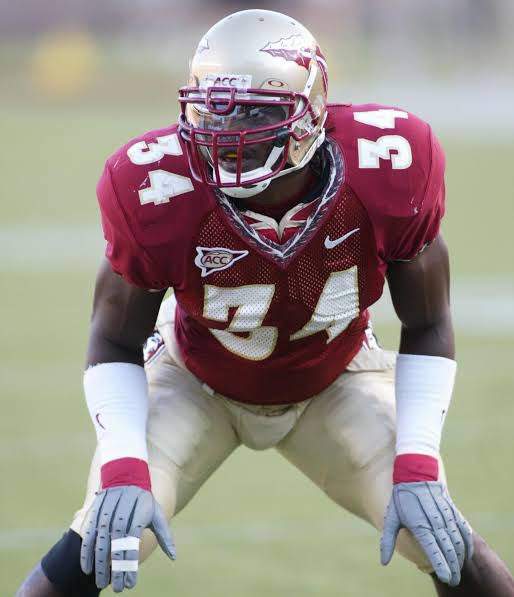Ernie Sims stood at the edge of the Florida State University football field, the sun dipping low on the horizon, casting long shadows over the grass that had once felt like home. The crowd’s roar still echoed in his mind, memories of game days and the thrill of victory flashing before his eyes.
Years had passed since he last donned the garnet and gold as a linebacker, but his spirit remained intertwined with the university. Now, he returned not as a player but as the new athletic coordinator, determined to inspire the next generation of athletes.
As he walked through the training facilities, he greeted students with the same warmth and enthusiasm he had shown on the field. He remembered the struggles he faced as a young athlete—overcoming injuries, balancing academics, and the pressure of expectations. His mission was clear: he wanted to create an environment where students could thrive, both in sports and in life.
The first week was a whirlwind of meetings, strategy sessions, and heartfelt conversations. He worked closely with coaches, emphasizing the importance of mental health and academic support. “It’s not just about winning,” he reminded them. “We’re shaping futures.”
One afternoon, he held a meeting with the football team. Standing before them, he felt the weight of his own legacy. “I was once where you are,” he said, eyes gleaming with passion. “Football is important, but don’t lose sight of who you are off the field. Be leaders, be scholars, and always give back to the community.”
The players listened intently, many taking notes. Ernie shared stories of his own challenges, how he had navigated the ups and downs of college life, and how the support of his coaches had made all the difference. He encouraged them to lean on each other, to build a brotherhood that extended beyond the locker room.
As weeks turned into months, the athletic program began to flourish under his guidance. He introduced mentorship programs, workshops on personal finance, and community service initiatives that allowed students to engage with the Tallahassee community. Ernie often joined in, leading by example.
The culmination of his efforts came during the annual homecoming game. The stands were packed, and the atmosphere crackled with excitement. As he stood on the sidelines, watching the players take the field, a sense of pride washed over him. He had helped cultivate not just athletes but responsible young men who understood the power of their platform.
After the game, the team gathered around him, the victory ringing in their ears. One player, a freshman linebacker named Malik, stepped forward. “Coach Sims, thank you for believing in us,” he said, voice steady. “You’ve shown us that we can be more than just athletes.”
Ernie smiled, a deep sense of fulfillment settling in his heart. He knew he had come full circle, not just returning as a former player but stepping into a role that would shape the future of FSU athletics for years to come. With a legacy built on hard work and heart, he was ready to lead the next generation toward greatness, both on and off the field.
